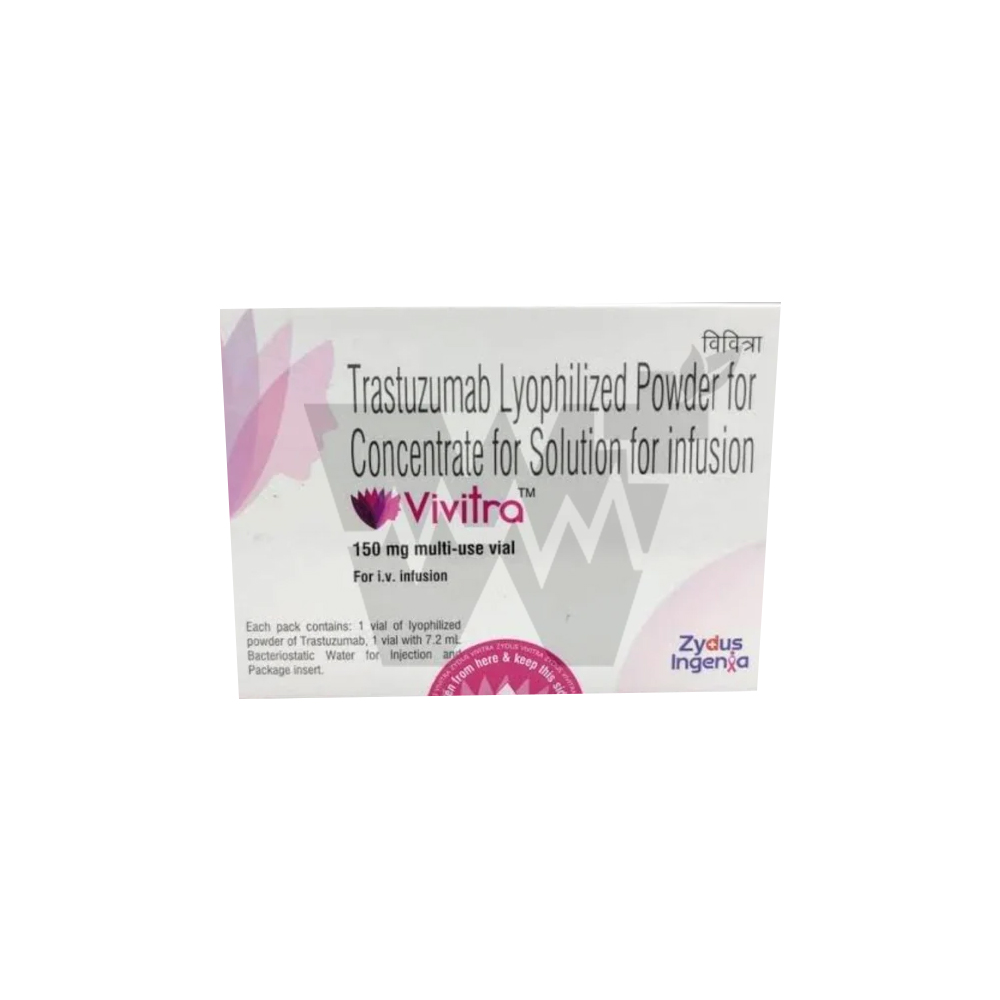



Introduction to Vivitra 150mg Tablets:
Vivitra 150mg Tablets are utilized in the treatment of breast and stomach cancer. The medication functions by targeting and inhibiting the growth of cancer cells through the suppression of HER2 (human epidermal growth factor receptor protein).
Administered as an infusion by a certified medical professional, your doctor will determine the necessary dosage and frequency of administration based on your condition, which may change over time. It is crucial to adhere to your physician's instructions precisely to avoid potential adverse effects. While the benefits of Vivitra 150mg Tablets may take weeks or months to manifest, it is essential not to discontinue the treatment unless advised by your doctor.
Uses of Vivitra 150mg Tablets:
Breast cancer
Stomach cancer
Benefits of Vivitra 150mg Tablets:
In Breast cancer:
Vivitra 150mg Tablets are utilized to treat breast cancer when other medications have failed to demonstrate significant improvement. It helps halt cancer growth and further spread, alleviating symptoms associated with breast cancer such as breast lumps, abnormal nipple discharge, or changes in breast shape or texture. This medication is administered as an infusion by a specialist or nurse. Adhering to your doctor's instructions carefully ensures the maximum benefit.
In Stomach cancer:
Stomach cancer, also known as gastric cancer, may occur in the inner lining (mucosa) of the stomach or in the walls of the stomach. These are of various types depending on the origin, affected area, and severity of the disease. Vivitra 150mg Tablets assist in eliminating cancer cells and halting their further growth and spread. Adhering to your doctor's instructions carefully ensures the maximum benefit.
Mechanism of action of Vivitra 150mg Tablets:
Vivitra 150mg Tablets are a recombinant IgG1 monoclonal antibody. They target the HER2 receptors, responsible for the over-proliferation of cancer cells in breast cancer and stomach cancer cells. By inhibiting HER2, they destroy the cancer cells. They also inhibit other cancer-causing downstream signaling pathways.